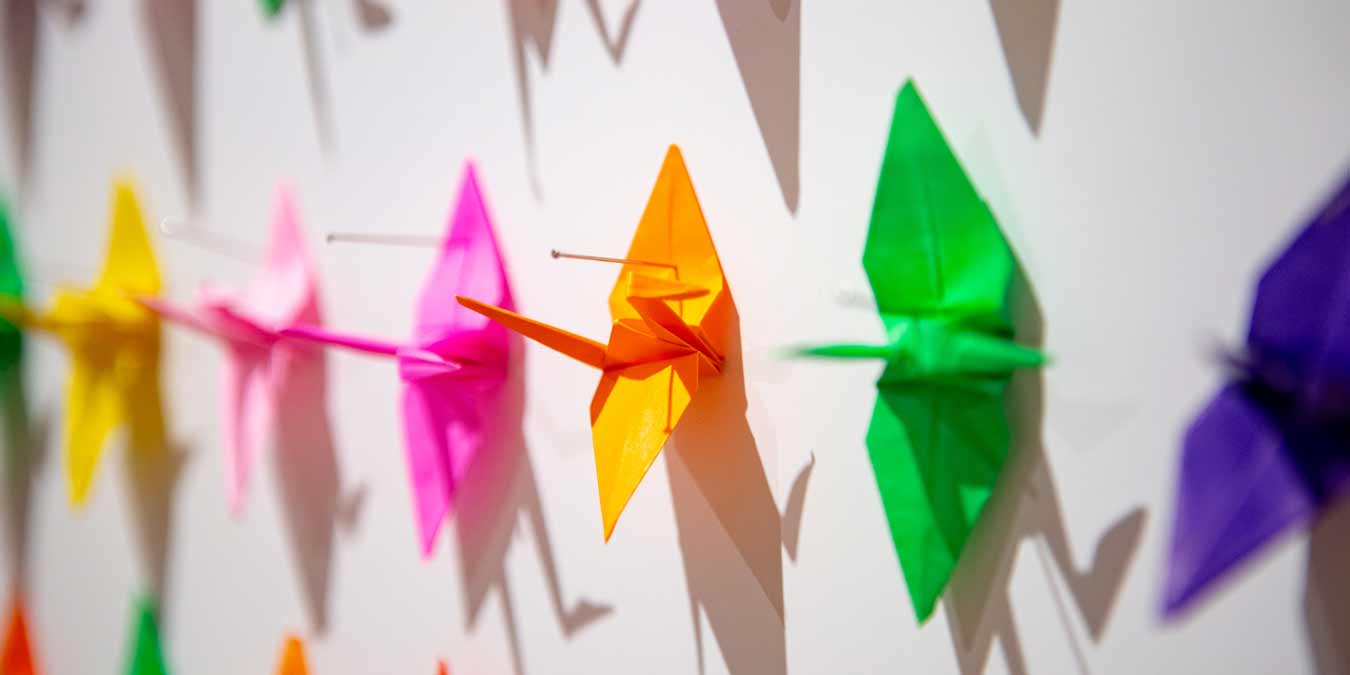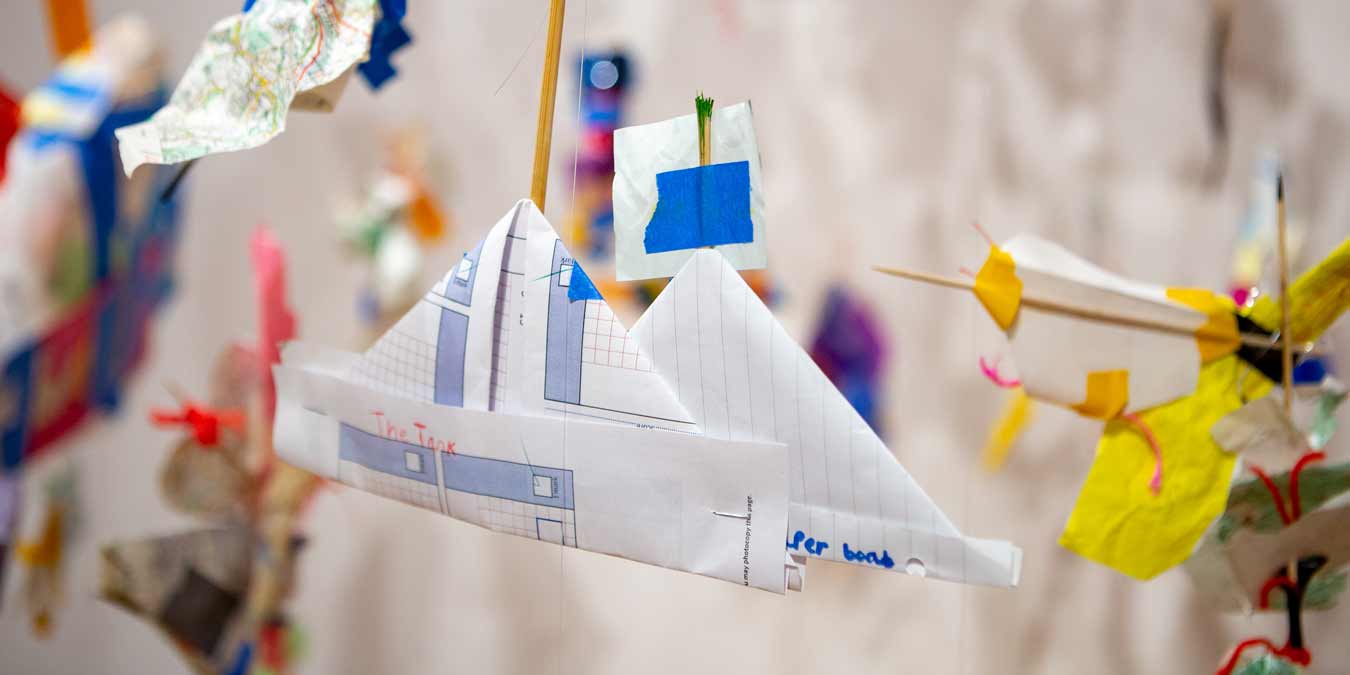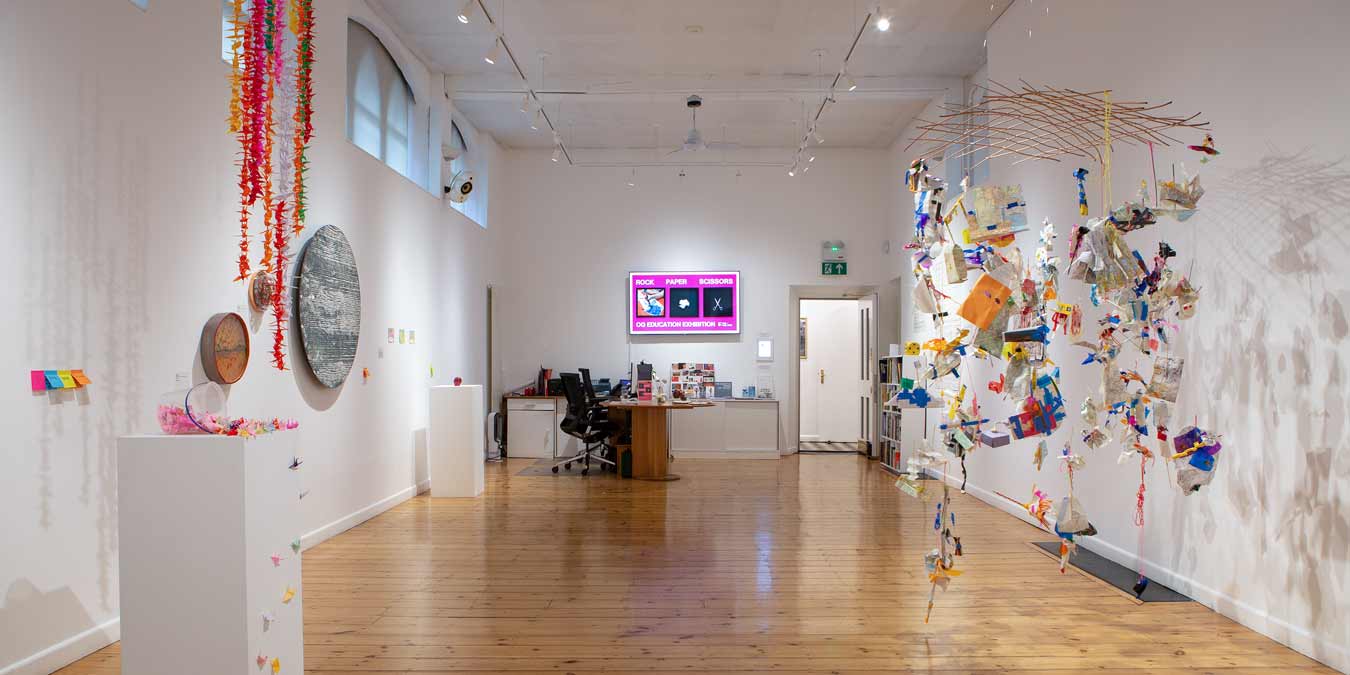ROCK, PAPER, SCISSORS
OG Education Exhibition
27 July - 30 July 2022
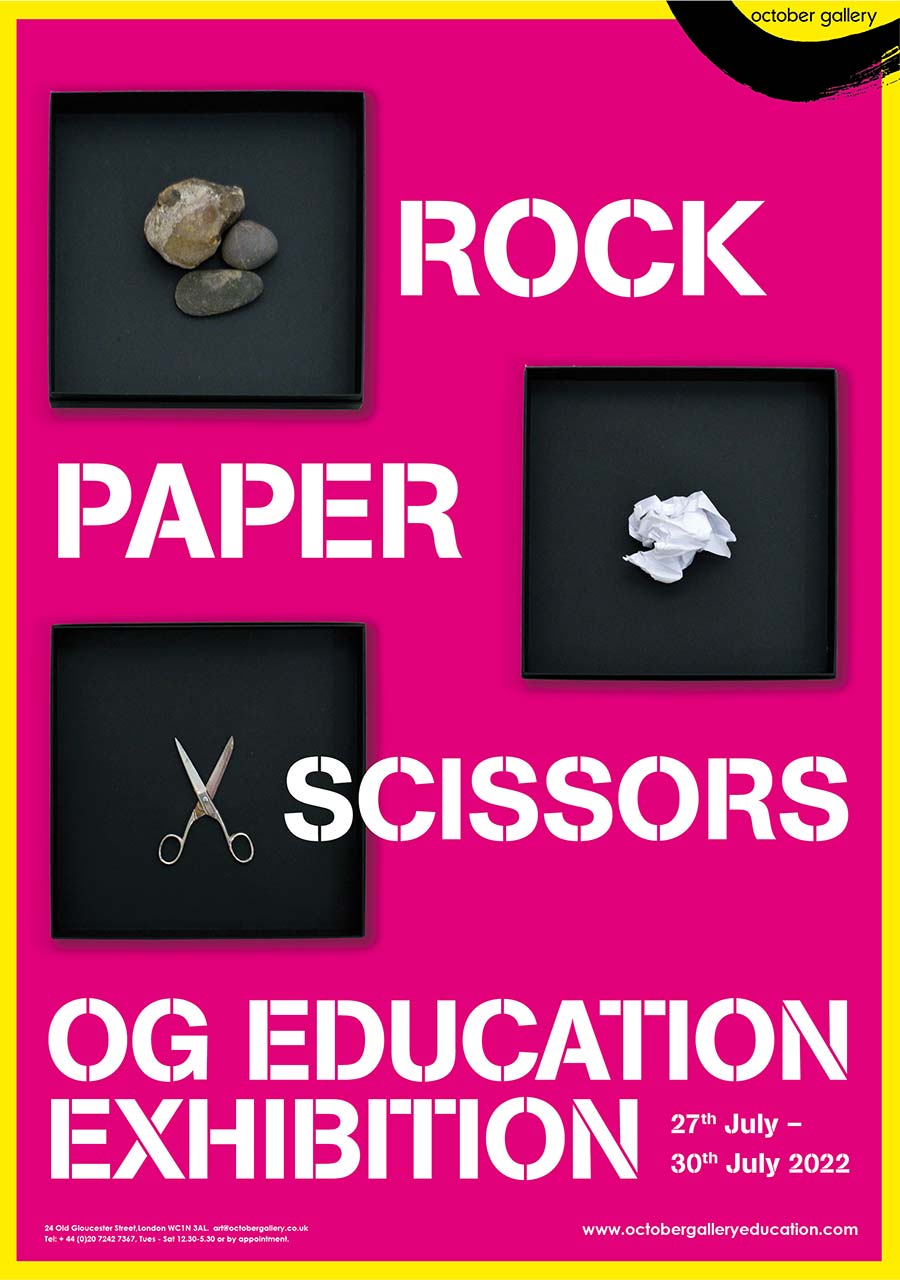
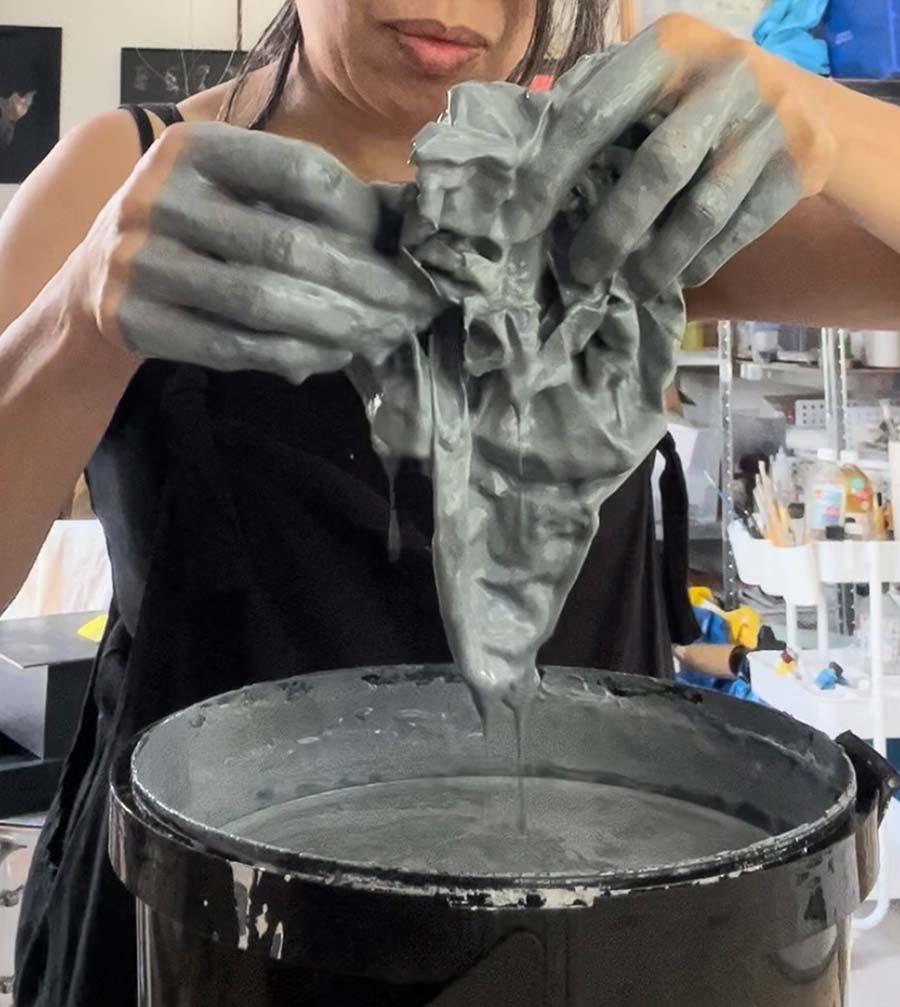
The theme of the presentation connects to activity games that are both inclusive and accessible. Rock Paper Scissors, encapsulates this approach, as it can be played anywhere, anytime. Using this well-known game as a starting point, contributing artists and groups expanded the concept to explore various materials. The exhibition will display the work of October Gallery Education over the past year, including new works from the OG Youth Collective, collaborative works by schools and community groups led by artist-educators, and artworks by the artist-educators themselves.
October Gallery Education connects community groups to a plurality of ideas and approaches to making art. The artworks in this year's Education Exhibition reflect the rich diversity of materials used by the international contemporary artists on show at October Gallery, such as cascading paper sculptures, striking figurative paintings and applied signs and glyphs to ceramic and paper forms. Rock, Paper, Scissors, highlights the unlimited scope of human artistic responses to the world around us when creative play is set in motion.
Rock, Paper, Scissors culminates with a special Family Art Day in the Gallery on Saturday 30th July 2022 from 10 am until 3 pm, which will give children and adults of ALL AGES the chance to do some hands-on art making with artist-educators, and OG Youth collective as well as explore the gallery, courtyard and add their own artwork contributions to various collaborative installations.
While researching the origins of the Notting Hill Carnival during the pandemic ‘lockdown,’ Douglas Camp became fascinated by a set of coloured lithographs by Isaac Mendes Belisario, depicting Jonkonnu revellers in Jamaica in the late 1830s. The Jonkonnu festival developed during the period of slavery, when plantation workers celebrated the few days holiday allowed each year with exuberant musical masquerades that recalled their African heritage. During these revels, the slaves would disguise themselves in costumes that borrowed from and parodied western archetypes: admirals, sailors, queens, plantation-owners, actors, etc., each with a dramatic headdress, while mingling with these figures were wild men, nature-spirits, demons etc., whose roots lay deeper in ancestral African traditions.
The striking headgear of the masked revellers reminded the artist of the thrilling Kalabari masquerades of the Nigerian coastal region where she was raised, figures she had previously explored in her work. The outpouring of sculptures that resulted is a heady mix of outlandish characters who trace the overlapping links between still-surviving African masquerades, Caribbean carnival traditions and their most recent incarnation on the streets of London, during the colourfully costumed parades of the Notting Hill Carnival. With these exhilarating new works, Sokari Douglas Camp pays homage to the indomitable ‘carnival spirit’ still surviving despite all adversity. These steel sculptures playfully combine different elements from the interrelated worlds of imaginative masquerades, festival processions and carnival parades. In so doing, they affirm the powerful contribution of the African and Caribbean cultures to the multicultural city of London today. While the Notting Hill Carnival has been cancelled for the past two years because of the pandemic, the vital energy of these dancing figures looks forward to a time - soon to come - when the joyful revels return and the entire community unites in celebrating together again our collective powers of resilience.



